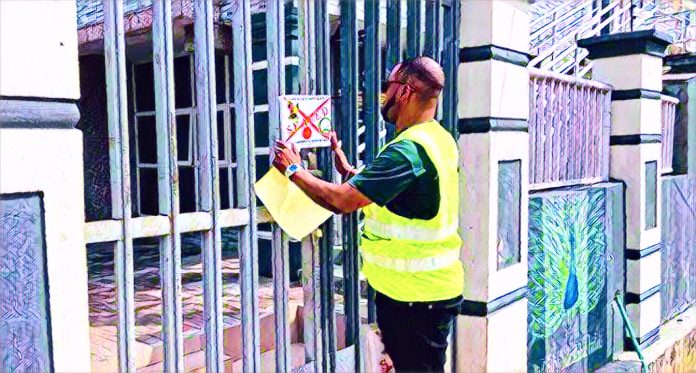Over the past three months, the Lagos State Environmental Protection Agency (LASEPA) has undertaken significant actions to mitigate environmental nuisances across the bustling metropolis of Lagos, leading to the closure of approximately 250 establishments, encompassing a diverse array of entities such as industrial facilities, places of worship, and entertainment venues like nightclubs. This initiative underscores the Lagos State Government’s relentless pursuit of fostering an environment that is not only healthier but also sustainable for its inhabitants.
Amidst these closures were branches of the prominent Redeemed Christian Church of God (RCCG), highlighting the non-discriminatory nature of LASEPA’s enforcement and its commitment to addressing noise pollution irrespective of an organization’s size or influence. This move reflects a broader strategy to tackle environmental infractions head-on, emphasizing the agency’s role in safeguarding public health and well-being by reducing noise pollution and other environmental hazards.
Under the leadership of Babatunde Ajayi, the General Manager of LASEPA, the agency has not only focused on enforcement actions but also on institutional strengthening and capacity building. Ajayi revealed these details during a comprehensive one-day training session designed for LASEPA-accredited consultants. This event, conducted in collaboration with the Climate Transition Academy, took place in Ikeja’s Central Business Development Area and was aimed at equipping these consultants with the latest knowledge and tools to tackle global environmental challenges, particularly climate change.
The training underscored the urgent need for consultants to familiarize themselves with the Environment Social Governance (ESG) global model. This approach is critical in addressing a wide array of environmental issues, including the pervasive challenge of climate change and its associated greenhouse gas emissions. Ajayi’s call to the consultants to embrace and promote this model reflects a strategic shift towards integrating global best practices in environmental management and sustainability within the local context of Lagos State.
Moreover, Ajayi emphasized the agency’s dedication to enforcing compliance with environmental regulations, a cornerstone of the state government’s T.H.E.M.E.S development agenda, aimed at achieving a cleaner, safer, and more sustainable environment for all Lagosians. This approach includes a comprehensive strategy that goes beyond mere enforcement to include education, capacity building, and the adoption of innovative practices in environmental governance.
James Ogunleye, representing the Executive Director of Carbon Limits Nigeria, also contributed to the discourse by highlighting the evolution of the consultancy role within the environmental sector. He pointed out that the knowledge base required for consultants has significantly expanded beyond traditional Environmental Impact Assessments (EIA), Environmental Audit Reports (EAR), and Environmental Impact Analyses (EIA). Today, consultants are expected to possess a broad understanding of global environmental practices and sustainability principles to effectively contribute to the state’s environmental governance and policy implementation.
This initiative by LASEPA and its collaborative efforts with environmental consultants signify a robust and forward-thinking approach to environmental management in Lagos State. By focusing on capacity building, enforcement, and the adoption of global environmental standards, the agency is setting a precedent for other states and regions to follow. Such actions not only address immediate environmental concerns but also contribute to the long-term sustainability and health of the community, ensuring that Lagos remains a vibrant, livable, and environmentally responsible city.
The closure of the 250 establishments, including revered religious institutions like the RCCG, serves as a stark reminder of the pressing need to balance urban development with environmental stewardship. It underscores the government’s commitment to ensuring that economic activities and social gatherings do not come at the expense of the environment or public health.
As Lagos continues to grow and evolve, the actions of LASEPA highlight the critical importance of environmental governance in urban settings. By prioritizing the health and sustainability of the environment, Lagos sets an example for cities worldwide, demonstrating that development and environmental protection can go hand in hand. This balanced approach is essential for creating cities that are not only economically vibrant but also sustainable and livable for future generations.



